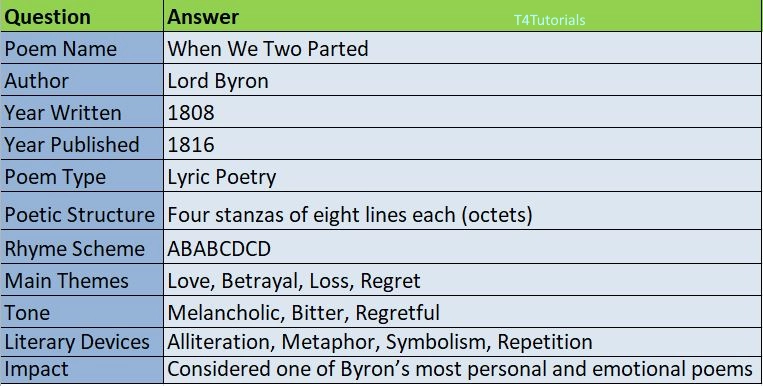Summary:
“When We Two Parted” is a deeply personal and melancholic poem by Lord Byron, written in 1808 and published in 1816. The poem explores themes of love, loss, heartbreak, and betrayal. Byron reflects on a past romantic relationship that ended in sorrow. He expresses feelings of grief, regret, and secrecy, suggesting that the love was not only painful but also hidden from society. The poem is written in four octets (eight-line stanzas) and follows a regular rhyme scheme (ABABCDCD), which enhances its rhythmic flow. The tone is mournful and bitter, as Byron recalls the cold farewell, the silence between the lovers, and the deep emotional wounds that remain even after time has passed. The poem hints that the woman he loved may have been unfaithful, adding to his sorrow. He suggests that the love they once shared is now something he cannot even talk about, making his pain even greater. The poem concludes with a haunting thought—if they ever meet again, he will greet her in silence, just as they parted.
10
Score: 0
Attempted: 0/10
Subscribe
| Question | Answer |
| Poem Name | When We Two Parted |
| Author | Lord Byron |
| Year Written | 1808 |
| Year Published | 1816 |
| Poem Type | Lyric Poetry |
| Poetic Structure | Four stanzas of eight lines each (octets) |
| Rhyme Scheme | ABABCDCD |
| Main Themes | Love, Betrayal, Loss, Regret |
| Tone | Melancholic, Bitter, Regretful |
| Literary Devices | Alliteration, Metaphor, Symbolism, Repetition |
| Impact | Considered one of Byron’s most personal and emotional poems |